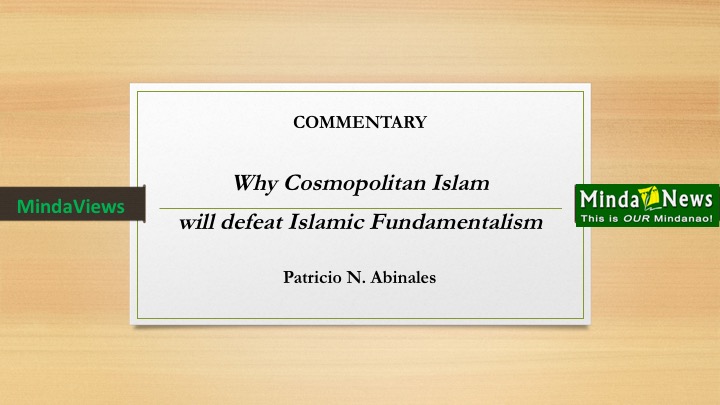
HONOLULU — Folks in this island state I live in ask whether it is dangerous to go visit the home county in the light of what is happening in Marawi and elsewhere. My response is always the same. The violence in Moro Mindanao is real but it is not what Moro Mindanao is all about. In fact what draws me always to Moro Mindanao is just how diverse and cosmopolitan the place is, and how open-minded and pragmatic people are when approaching issues like religion, national politics, and life in the ummah.
And in many a conversation with these American-Filipinos, many of them completely ignorant of Mindanao and its complex histories, I always end up painting to them this portrait of what being a Moro, a woman, and someone living in the alleged violent parts of the country look like. I also posed the same question to political scientists having their annual association gathering in Cebu a month back.
To wit: What would Philippine history look like if you encounter a Moro woman with the last name Tan, sitting in her Panglima Sugala hut, sorting out knocked-off iPhones and Blackberries from southern China, malong from Indonesia, 5-in-1 coffee sachets from Malaysia, copies of a digitized version of a famous Japanese porn film and bullets for the Fabrique National Carabine the Belgian-made rifle stolen from the Indonesian army?
Bai Tan is doing all this while watching reruns of her favorite Indonesian drama series, Love in Paris, featuring the hunk and Leloy Claudio look-alike Dimas Anggara, on a rewired Japanese-made TV she bought cheap from a Filipino crew member of a Panamanian-owned cargo ship passing through her area. Occasionally she glances at her cell phone expecting a text from her Saudi Arabia-based daughter, who will tell her how much she will remit to the Philippine National Bank branch in Tawi-Tawi. She hopes to get the text before 1 p.m., because past that time, the currents will shift and if she takes her motorized banca then she will most likely end up in Bukaan, Gorontalo province, northern Sulawesi.
So, here we have a citizen and a felon by livelihood, a Filipino cedula holder whose mental world is global: northern Sulawesi, Saudi Arabia, Panamanian cargo ship, Japanese television, Indonesian telenovela, Malaysian coffee, Indonesian malong, southern China, and most surely – Singapore. She is a Muslim comfortable with marketing the most un-Islamic of goods (porn film, bullets).
She lives at the edge of the national territory (Panglima Sugala an islet east of Tawi-Tawi), a site, the Sulu Zone, which state leaders (and dare I say political scientists?) regard with trepidation because it is where the political disorder is at its most intense and the national state at its weakest.
She is Moro and Chinese – the spawn of the two minority groups that people in the center mistrust the most: recall the racist rants of the national artist F. Sionil Jose regarding the Chinese, and the 2004 Philippine Human Development Report survey that showed 48% of Filipinos still believing Moros are terrorists and amok.
How would you place Bai Tan the story of the Philippines?
This is not an easy task especially since as a matter of habit, we always assume that history is defined by the metropolis and that national politics is nothing but the institutional and political combat of national elites at the national capital. Political engagements outside of the capital are ancillary if not insignificant especially if they fail to fit this national (nationalist?) prism. This is a point of view that also represents conventional approaches of local politics which tend to replicate the analytical lenses by looking at provincial and town elites while marginalizing other actors like Bai Tan and many others from their local/ethnolinguistic narratives and typologies.
And it is in the predominance of this national(ist)–read Manila-based and Western (American-Filipino)-fear that we also end up misunderstanding the Marawi tragedy. It is this failure to recognize that Filipino Islam is an extremely diverse set of interpretations of the Koran, many of these thought of and argued within the specific context of Moro Mindanao.
It is easy to banner ISIS out there as it simplifies the conversation and stokes up the fear, but in the long-run, because it is often based on lies and myths, it will end up causing far-serious damage to an ummah that – going by the description I laid up above – is more cosmopolitan and complex than even some parts of the imperial capital.
(MindaViews is the opinion section of MindaNews. Lunghay nga Ozamiznon kini si P.N. Abinales)
http://www.mindanews.com/mindaviews/2017/06/commentary-why-cosmopolitan-islam-will-defeat-islamic-fundamentalism/

No comments:
Post a Comment
Note: Only a member of this blog may post a comment.